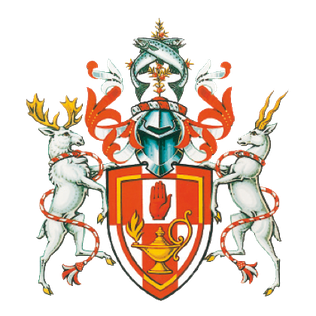PhD Opportunity
PhD Program in Art, Design and History 2019
Subject: Art and Design: History, Practice and Theory
Summary
The materiality, variety and diversity of often unregulated traces and marks in the urban environment characterise the behaviour, expectations and conversations of societal groups, representing underpinning ideologies of place and identity. Urban artefacts may evoke the totality of a culture, expressing meaning beyond the object itself through relays of codes in the present, or referential indexing to the past. Cultural shifts and developments impact the way in which meaning is represented on urban forms.
Prior to broad-scale manifestation of the written word as an expression of language on modern signs, image-based artefacts embodied representational meaning. Visual artefacts alone bore the responsibility of indicating qualities, affordances, concerns and/or narratives of place. While these have now largely given way to written means of mark-making, primitive interpretative marks, often painted, placed, or carved onto urban surfaces, continue to be a source of value and curiosity. Visual grammar remains a valid means of representation and an effective signifier of underlying culture and place, despite, or perhaps due to, relatively informal rules for interpretation.
As urban environments are ever-evolving products of many makers, excavation of surface layers of meaning may also expose past practices, lives and evidence of industry and (sub-)culture. The discipline of archaeology increasingly deploys creative approaches to understand and record the rapid material flux associated with the recent or contemporary past. Archaeological excavation of a surface or artefact may reveal a palimpsest, referencing previous conversations of place and identity, representative of wider cultural assumptions or priorities.
The visual language and layers of meaning on urban surfaces or artefacts may stimulate the senses and curiosity of the interpreter of meaning, or may encourage subversive, accumulative or aberrant interpretations and interventions. While some of these marks are relatively self-explanatory, others remain ambiguous, existing outside of mainstream cultural systems. Such marks ‘haunt’ certain locales, exerting a ‘seething presence’ through which we can sense the agency of those who are no longer there. Although often unsanctioned, these marks can confer a degree of social aliveness to a place or, indeed, a ‘non-place’. This is particularly true of Belfast, with its high density of walls offering ample opportunity for mark-making and site-specific expressions of identity.
This project will combine a study of urban culture and artefacts with the establishment of practice-based outcomes, as an expression of narratives, concerns, conversations and ideologies of place and identity. It will attempt to better understand the phenomenon of urban mark-making by cataloguing and establishing a typology of marks through systematic recording. It will also consider what role these practices play in place-making and the assertion of identities in Belfast and beyond, investigating to what extent there are commonalities across time and space.
This project will make an original contribution to knowledge by recording and raising awareness of these often over-looked and ephemeral forms of expression.
A range of practice-based outputs may include reinterpretation through a combination of graphic design practices, printmaking and exploration of the ceramic surface, resulting in new artefacts of material culture.
Essential Criteria
- Upper Second Class Honours (2:1) Degree or equivalent from a UK institution (or overseas award deemed to be equivalent via UK NARIC)
- Sound understanding of subject area as evidenced by a comprehensive research proposal
- A comprehensive and articulate personal statement
Desirable Criteria
- If the University receives a large number of applicants for the project, the following desirable criteria may be applied to shortlist applicants for interview.
- Completion of Masters at a level equivalent to commendation or distinction at Ulster
- Practice-based research experience and/or dissemination
- Experience using research methods or other approaches relevant to the subject domain
- Work experience relevant to the proposed project
Funding
Vice Chancellors Research Scholarships (VCRS)
The scholarships will cover tuition fees and a maintenance award of £14,777 per annum for three years (subject to satisfactory academic performance). Applications are invited from UK, European Union and overseas students.
DFE
The scholarship will cover tuition fees at the Home rate and a maintenance allowance of £ 14,777 per annum for three years. EU applicants will only be eligible for the fees component of the studentship (no maintenance award is provided). For Non EU nationals the candidate must be "settled" in the UK.
For more information click "LINK TO ORIGINAL" below.
This opportunity has expired. It was originally published here:
https://www.ulster.ac.uk/doctoralcollege/find-a-phd/341396
